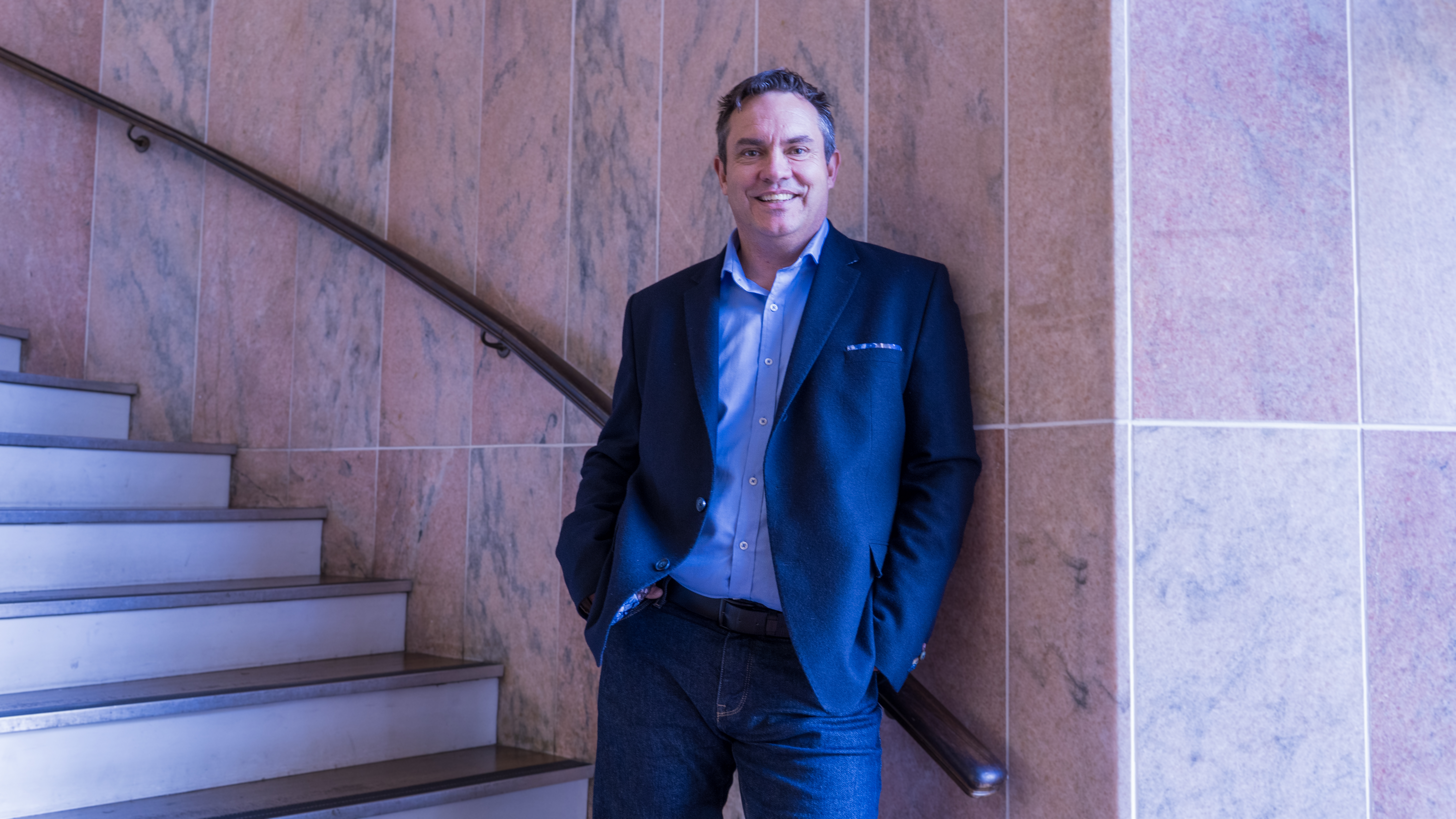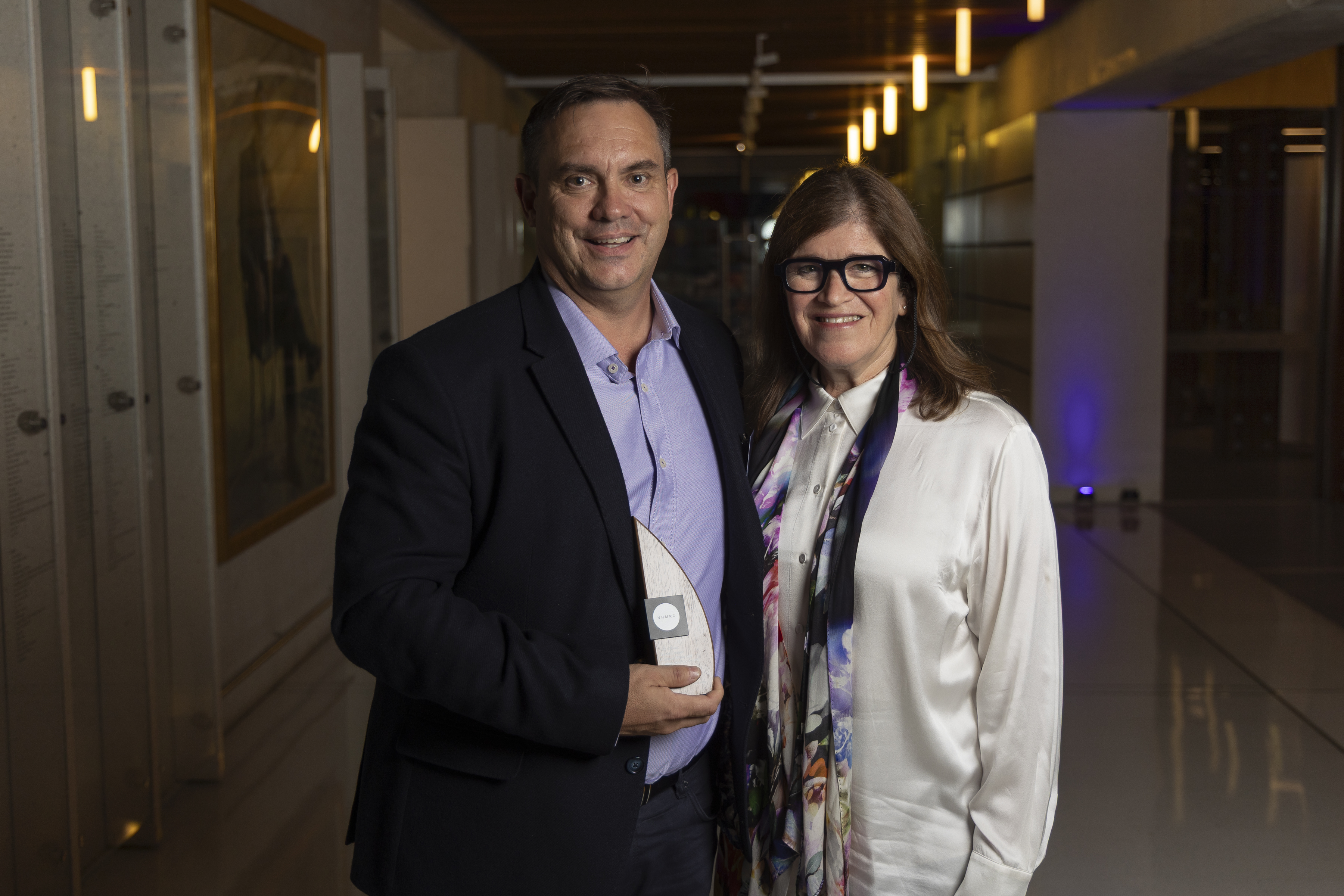Ngiyampaa/Wongaibon social epidemiologist and recipient of the 2023 NHMRC David Cooper Clinical Trials and Cohort Studies Award, Professor Raymond Lovett has focused his career on improving Aboriginal and Torres Strait Islander health. As an Associate Director of Yardhura Walani (Australian National University) and Director of Mayi Kuwayu: The national study of Aboriginal and Torres Strait Islander wellbeing, Professor Lovett’s research has influenced policy at state and national levels, as well as empowered communities at the local level. He is now aiming to take this to the global stage through the development of a world-first Indigenous wellbeing index.
My research is embedded within a nationally significant Indigenous governed and led research Centre, Yardhura Walani, at the ANU. Our centre’s research principle is to be in service to Aboriginal and Torres Strait Islander peoples and we do this through deep community partnerships, conducting meaningful, transformative research led by community priorities to create impact at the systems level.

Our research is focused on generating evidence on Indigenous culture, including cultural domains, as a protective factor against the impact of colonisation. It has also generated evidence on a new set of under-appreciated risk factors such as the settler colonial risk and the impact it has on Indigenous health.
The NHMRC David Cooper Clinical Trials and Cohort Studies Award has recognised my project Counting what counts: using a national cohort study to develop, validate and apply an Indigenous quality of wellbeing (IQoW) utility index and quantifying key determinants of health.
“Health and wellbeing are influenced by many factors, yet globally, Western developed quality of life measurements focuses almost exclusively on physical health. For Indigenous peoples, social, emotional and cultural wellbeing of community, and health of country are known to impact quality of life.”
Counting what counts will provide new evidence and tools to strengthen health policy, programs, and services for Aboriginal and Torres Strait Islander peoples. This will be through the creation of a world-first Indigenous wellbeing index which will inform policy, services and programs that meet Aboriginal and Torres Strait Islanders’ wellbeing needs – a model that could be adapted globally.
From previous research we have conducted through the Mayi Kuwayu Study, we know that almost half (47%) of the health gap between Indigenous and non-Indigenous Australians remains unexplained by health behaviours and the social determinants of health.
“Settler colonial risk factors, including exposure to racism, have been described as a public health emergency, and from preliminary work we know that if we were able to eliminate racism we could reduce up to 50% of the levels of high psychological distress for Aboriginal and Torres Strait Islander peoples.”

We also know that increased cultural engagement and expression is associated with improved wellbeing and the national Aboriginal and Torres Strait Islander policy agenda has been informed by the Mayi Kuwayu Study. But despite this growing evidence regarding the importance of cultural, social and emotional wellbeing to Aboriginal and Torres Strait Islander health, there is currently no means of operationalising these concepts within policy.
“The IQoW utility index will provide communities, researchers, and policymakers with the means to understand a greater diversity of determinants, including cultural and historical factors, facilitating ground-breaking research regarding the drivers of Aboriginal and Torres Strait Islander health inequity.”
This project will achieve major knowledge, health, economic, and social impacts. Once developed, the IQoW utility index will generate reliable evidence on the relationships between quality of wellbeing and health outcomes. This will facilitate increased investment in the upstream drivers of health, support a shift from treatment to prevention, and transform how healthcare is conceptualised and delivered.
The importance of this research comes as a direct response to the needs and priorities of Aboriginal and Torres Strait Islander peoples. These priorities are articulated in the National Aboriginal and Torres Strait Islander Health Plan 2021-2031, which recognises the physical, social, emotional, and cultural wellbeing of individuals, families and communities as the foundation for a healthy life.
For decades, communities have been advocating for improved wellbeing and measures reflecting what is important. So ultimately, we can see our research leading to major health gains across many domains for Aboriginal and Torres Strait Islander peoples.
“In particular, the social impacts of this project cannot be overstated. It will support self-determination and gains in knowledge, health and wellbeing, ultimately enhancing Aboriginal and Torres Strait Islander peoples’ ability to enjoy long, healthy lives centred in culture.”
I’ve been so lucky to be mentored by very senior Indigenous researchers from other institutions and countries. It has been a privilege to be able to pay it forward by bringing on additional students, thanks to this project and the funding from NHMRC.
